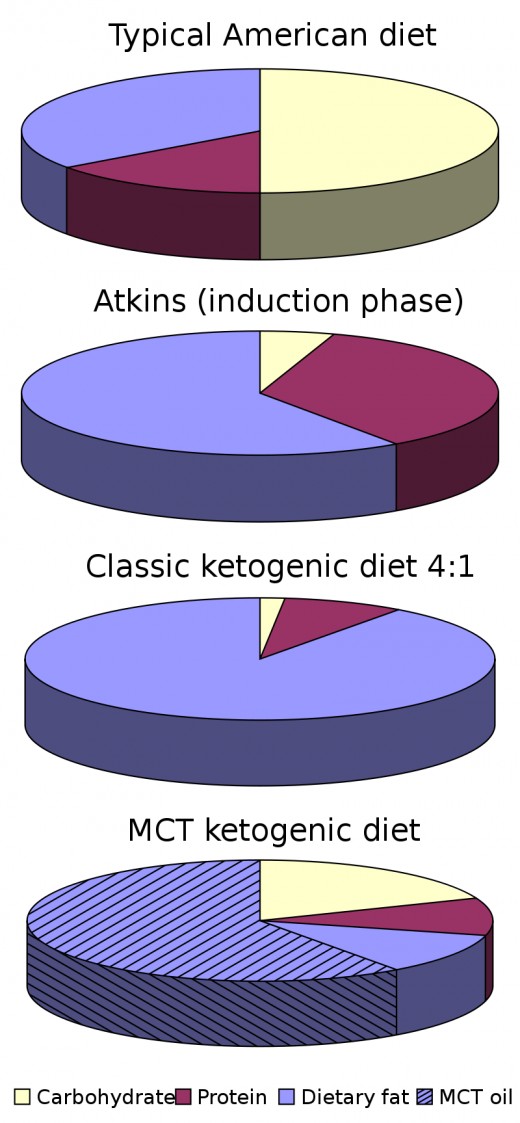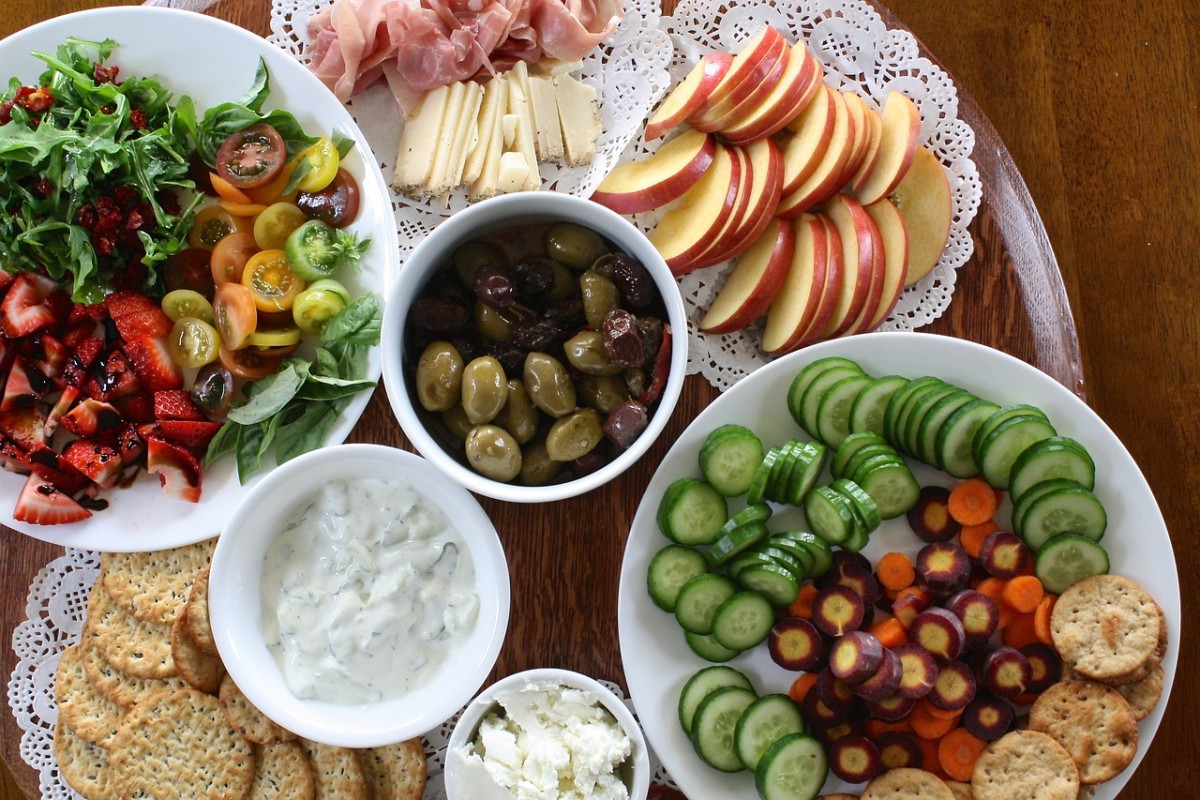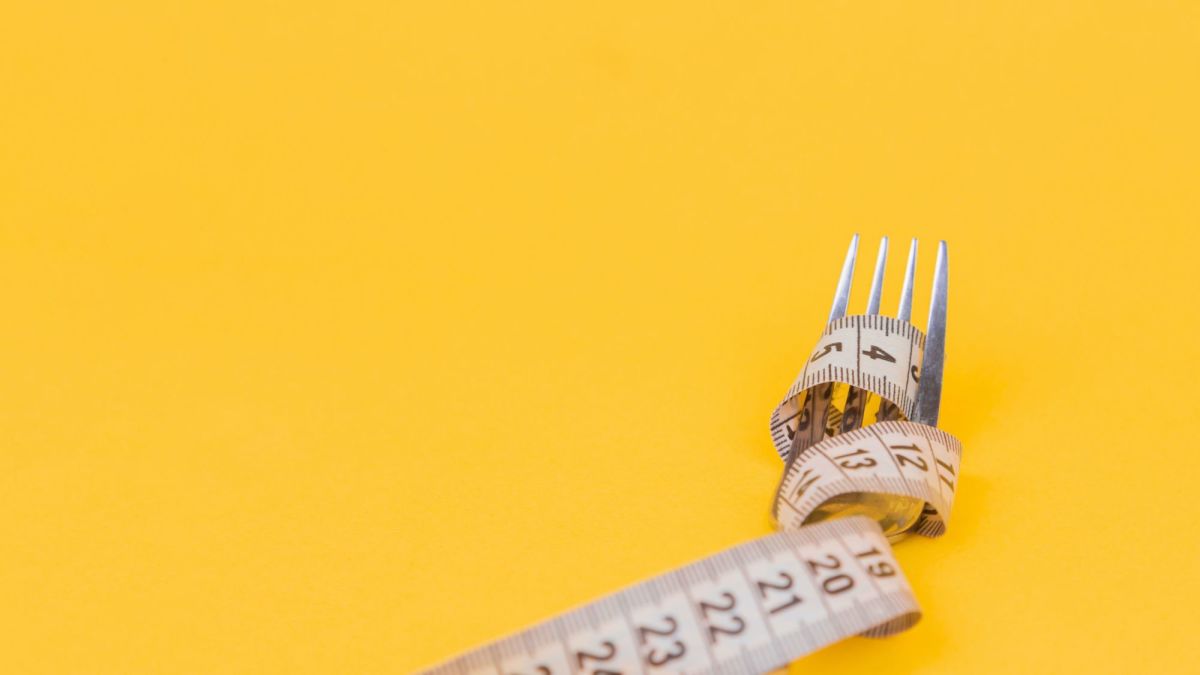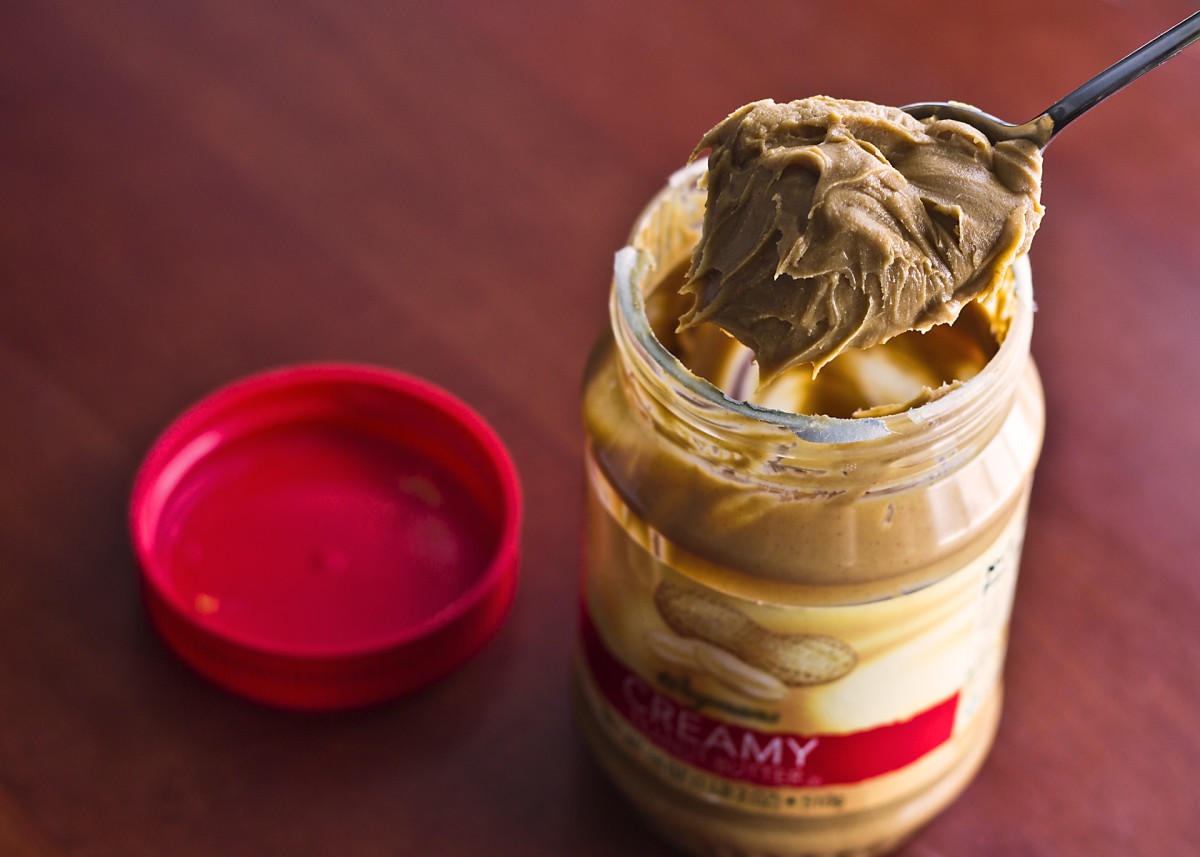How Keto Myths Are Holding Back Your Weight Loss

What is the Keto Diet?
The keto diet is a form of high fat, low carb diet which shares a number of similarities with the old-fashioned Atkins diet.
The idea behind the keto diet is simple. By cutting your carbohydrate intake as low as possible, you allow the glycogen stores in your muscles to become depleted and your body enters a state known as 'ketosis' where it burns fat for energy.
This has a number of benefits for people who are trying to lose weight. In particular, the keto diet promotes fat loss over the loss of lean mass, thereby helping to keep a person's metabolic rate as high as possible, even as they lose weight, allowing for greater ongoing weight loss, and promoting the lean, toned body that so many people desire.
Another benefit of the keto diet is that high fat foods are filling and satisfying, so it is easier to "eat whatever you want and feel satisfied" on keto than it is when eating carb-rich snacks.
The Balance of Proteins, Carbohydrates and Fats

Does the Keto Diet Really Work?
There is a lot of evidence to show that the keto diet is effective. The reason that the keto diet is controversial today is because keto enthusiasts and nutrition experts disagree on the "how" and the "why".
Spend enough time on weight loss forums and you will run into someone who swears that they "ate 500 calories a day, ran 5 miles three times a week and still couldn't lose weight". That same person will then swear that they can eat whatever they want on keto and the weight just falls off.
It's entirely possible that those people really did think that they were eating just 500 calories per day, but that they forgot about that 600 calorie Starbucks drink, and didn't realize that their bowl of cereal was closer to three servings, not one. For a small female, those two miscounts would be enough to ruin any calorie deficit.
The keto diet works well because it is a simple set of rules that forces helps people to make good food choices. In addition, fat is filling and takes a while to digest, and the body does process fats differently to carbohydrates, so the keto diet frees you from the insulin spikes and troughs that come with eating white bread, cereals, and potato chips.
The keto diet works because it encourages people to eat filling foods, and therefore they eat less.
Is the Keto Diet Safe?
The keto diet is still relatively new compared to other diets. Harvard Health Publishing is quick to emphasize that there is still not a lot of evidence relating to the long term health benefits or risks associated with following the keto diet.
In the short term, the keto diet is safe, although some people may experience what is known as the "keto flu" when they first start cutting down on carbohydrates. The "keto flu" is a slang term used to describe the sluggishness, brain fog and general malaise that can occur while the body is getting used to using fat for energy. Fortuantely, these tend to be short-term.
Some people experience other side-effects, such as diarrhea or constipation while following a keto diet. These side-effects can be mitigated by eating sufficient fiber (ideally from vegetables) while maintaining a keto diet.
There are some concerns that long-term, keto could lead to nutrient deficiencies or to elevated blood pressure because of the emphasis on red meat and fat leading some people to eat exclusively those things, while avoiding vegetables.
There are also some concerns that certain kinds of keto diet can increase cholesterol and inflammation, although there are other studies which report the opposite result.
Doctors often prescribe the keto diet for people who are suffering from epilepsy which cannot be controlled via other means. If the diet is followed closely, and the patient pays attention to good nutrition, eating lots of fiber and green, leafy vegetables as a part of the diet then it can work for them.
Where many members of the public go wrong is that they subscribe to the keto myth that "fruit and veg are bad because they contain carbohydrates". It is possible to eat lots of vegetables while following the keto diet and it is a very good idea to do so. Some fruits are quite rich in fructose, and are best consumed only in moderation, but other fruits can fit into the keto diet quite readily as well. The keto diet is not an excuse to live only on bacon and butter.
Keto, Insulin and Calories
One of the reasons that so many people love the keto diet is for its insulin-regulating effect. A lot of people are insulin resistant, and this means that they are at risk of developing type-2 diabetes.
It's easy for doctors to say "consume fewer calories than you burn each day and you will lose weight and reduce your diabetes risk", but for many people who are showing markers of poor metabolic health, it is not that easy.
Hunger, satiety, fat loss and health are closely related. There is a hormone called Leptin which is responsible for regulating our appetite and promoting a feeling of satiety. Recent studies show that leptin production and insulin levels are related as well.
Studies show that when a person follows the keto diet and enters ketosis, the levels of leptin in their blood increase. This helps to lower the levels of insulin in the blood, which in turn helps a person to lose weight, because lower insulin levels mean that the body is less likely to want to store fat.
Another side-effect of having higher leptin levels and lower insulin levels is that people tend to feel less hungry, which means they eat fewer calories.
The fat-storage side of the keto diet is helpful because it means that while a person is in a calorie deficit their weight loss will come more from fat cells than lean body mass. This means better body composition (no being 'skinny fat'), and also that as a person loses weight their basal metabolic rate will not drop as significantly as it otherwise might have, because they are not losing as much muscle.
Both fat and muscle are metabolically active, and need calories to support them, and in general lighter people need to eat less than heavier people, let's take an example based on calculations using the Mifflin-St Jeor Formula for calorie burn:
A sedentary 30 year old woman who weighs 150lbs and is 5ft 5inches tall would need 1,682 calories per day to maintain her weight. If she was "lightly active", doing some gentle exercise most days, then she could consume 1,927 calories per day.
Another woman who is the same age and height, but weighs 200lbs, would need to eat 1,952 calories to maintain her weight, and would steadily lose weight on a 1,682 calorie diet.
Let's assume that the two women are actually the same person at different stages of their lives. If the woman started at 200lbs, and wanted to lose weight, they could continue eating 1,954 calories per day, but start doing some light exercise each day. Their weight loss would be very slow and steady, but it would happen.
These figures assume 'average' body composition. If someone is able to hold on to most of their muscle mass, while losing fat, then they will have a higher metabolic rate than someone who is the same weight, but has more fat and less muscle. To put it simply, muscular people can eat more and the keto diet helps you keep your muscles!
The Production of Insulin and Glucagon Explained
How to Use Keto to Lose Weight
Many people find that simply starting the keto diet is enough to help them lose weight in the short term. The aren't triggering as much insulin production, they're less hungry, and therefore they automatically eat less and lose weight.
Indeed, lots of people experience rapid weight loss during the first week or two of the keto diet, however this weight loss is primarily water weight, not fat loss. Remember that the goal of the keto diet is putting a person into ketosis, a state where the body burns fat rather than sugar for fuel.
When someone is eating the standard American diet which includes a lot of carbohydrates, those carbohydrates are broken down and converted into energy in the form of glycogen. The glycogen is stored in your liver, and in your muscles. For every gram of glycogen that is stored in the body, you will store an additional two or three grams of water. Stop eating carbohydrates as much and your body will deplete those stores, then get rid of the water.
That, plus any water loss that comes from eating less sodium (let's face it, potato chips and other junk food products often contain a lot of salt) can produce a huge movement of the scales during those first few weeks.
Don't Lose Motivation When the Scale Stops Moving
That initial boost of weight loss from losing water weight can be a big motivator for some people, but eventually the weight loss will slow down and there may even be periods of time where the scale stops moving at all. If you are diligent in following your diet, then over a longer time period you will see the results that you expect.
The biggest keto myth is that keto is some form of magical diet, where a small female could eat 3,000 calories of steak per day and still lose fat because "carbs are what cause fat gain". That is not the case. The keto diet does work, and many people find that it works very well for them, but calories still matter.
What makes the keto diet effective is that a lot of people feel like they are eating more when they follow a keto diet. Some people even do manage to eat more on keto, but not because keto is magical. Rather, changing to keto means that they have more energy and can exercise more, so they're burning more calories. They also stick to the diet long term too because they don't feel deprived when they're eating steak, burgers and bacon every day. They snack less, because they always feel full.
How Much Should You Eat?
If you have a lot of weight to lose then you might find that when you switch to keto that alone is enough to kickstart your weight loss and for you to lose quite a few pounds before you hit a plateau. Eventually you might end find that your weight loss slows down a lot and that you need to monitor what you eat more closely, though.
To work out how much you need to eat each day, put your details into a TDEE calculator that also provides macro information, and then set your calorie goals in a free app such as MyFitnessPal so that you can log your food each day and make sure that you are staying on track.
You should still weigh, measure and log your food, even on keto. After a while you might get comfortable with portions and with a daily eating routine, and intuitively be able to stay on track but it takes weeks (sometimes even months) to build that habit.
Re-check your TDEE based on your current weight and activity level every couple of months and adjust as required.
Be patient. The best goal is to lose between 0.5lbs and 2lbs a week depending on how much weight you have to lose. The further above your ideal weight you are, the easier it is to lose weight rapidly. Most people should not be aiming to lose more than 1lb a week, which means eating around 500 calories fewer per day than you need to maintain your current weight and activity level.
The idea that calories don't matter on keto is one of the most misleading myths. It's true that the quality of the calories you eat matters a lot. It's true that 300 calories of meat and veg will be more filling than 300 calories of chocolate and that the type of food you eat makes a huge difference to how you feel. It's true that many people feel fuller, fitter and healthier on the keto diet. That does not mean, sadly, that a small female can eat 3000 calories a day of cheese and bacon. The keto diet is still, at the end of the day, partly based on calorie control. What makes it great is that it's control, not 'restriction' to most people.
Have you tried dieting?
Have you tried any of these diets?
This content is accurate and true to the best of the author’s knowledge and does not substitute for diagnosis, prognosis, treatment, prescription, and/or dietary advice from a licensed health professional. Drugs, supplements, and natural remedies may have dangerous side effects. If pregnant or nursing, consult with a qualified provider on an individual basis. Seek immediate help if you are experiencing a medical emergency.
© 2019 Leslie Ann








